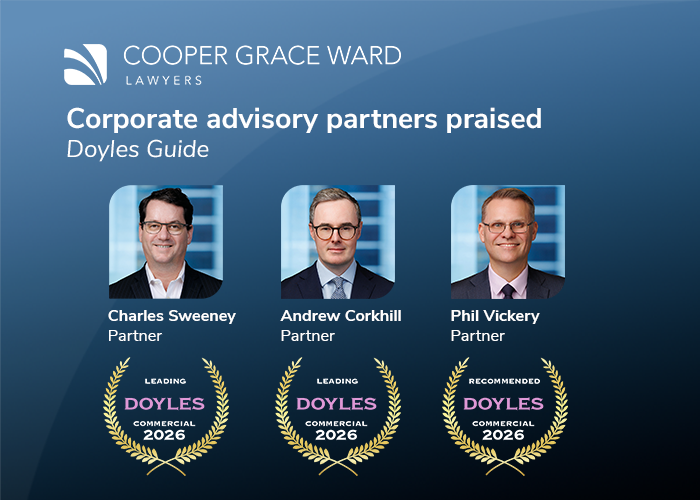In the 2011/2012 Budget, the government announced a package of reforms in relation to not-for-profit (NFP) organisations.
The reforms are aimed at ensuring government assistance to NFPs is directed towards altruistic purposes, shielding community assets from unnecessary commercial risks and delivering a level playing field between small, medium and large NFPs.
The NFP sector has been anticipating reforms since the decision in the Commissioner of Taxation v Word Investments Limited in 2008.
Following the 2011/2012 Budget announcement, the government has released a consultation paper to seek public feedback on proposed amendments to the relevant tax legislation.
Proposals
The government plans to reform the tax concessions available to NFPs to ensure that they are only available in connection with activities that directly further a NFP’s altruistic purposes and not their unrelated commercial activities.
The government position is that it does not want to prevent NFPs from carrying out unrelated commercial activities and that the reforms are intended to encourage altruistic entities to direct profits generated by unrelated commercial activities back to their altruistic purposes.
The reforms are not intended to affect:
- the availability of tax concessions in connection with commercial activities that further a NFPs altruistic purpose – such as op-shops that sell second hand items at discounted prices to disadvantaged members of the public and charities that provide meaningful employment to disabled persons;
- NFPs that engage in small scale and low risk unrelated commercial activities – such as lamington drive fundraisers and leasing out of church halls; or
- passive investment activities of NFPs.
If the reforms are implemented, income tax concessions will not be available in connection with unrelated commercial activities where the profits are not directed back to the NFP’s altruistic purpose.
There are also proposals to require that NFPs with commercial activities that do not further the NFP’s altruistic purpose, must conduct those activities in a separate entity.
Transitional arrangements
The proposed changes will apply to unrelated commercial activities commenced after 7.30pm (AEST) on 10 May 2011 (Budget Night).
If a NFP entity commences a new unrelated commercial activity after Budget Night the activity will be taxable from 1 July 2011.
Depending upon how the reforms are legislated, the activity may also need to carried out in a separate entity.
NFPs with existing unrelated commercial activities as at Budget Night will initially be able to continue to use their tax concessions in connection with the activities. However:
- tax concessions cannot be applied to new unrelated commercial activities; and
- it is envisaged that a transitional period and process will apply to allow NFPs to restructure unrelated commercial activities existing as at Budget Night.
The intention of the government is to phase out existing unrelated commercial activities (albeit over a very short time frame) and part of the consultation paper is directed at seeking public feedback on the operation of the transitional provisions.
What are ‘new’ unrelated commercial activities?
If a NFP entity changes its operations, it may result in a ‘new’ activity that would not be income tax exempt.
The government proposes to adopt the ATO’s ‘same business test’ in TR 1999/9 in determining whether there is a ‘new’ activity.
The following are some of the indicators of a ‘new’ activity:
- changes in goods and services;
- increases in the supply of goods and services;
- entering a new market of goods and services;
- material changes of customer base;
- changes in methods of sale of goods or services;
- changes in location; and
- new activities or periods of dormancy.
The outcome of the public consultation process as to ‘new’ unrelated commercial activities will be critical for income tax purposes and may affect the business structure of NFPs.
Impact
NFPs can still carry out commercial and business-like activities where they are incidental to their charitable purposes.
The reforms are intended to encourage altruistic entities to direct profits generated by unrelated commercial activities back to their altruistic purposes.
NFPs should:
- review their existing activities in light of the proposed reforms;
- be cautious when commencing new commercial activities;
- consider operating new activities in a different entity where appropriate;
- be careful not to materially change existing activities; and
- keep a close eye on the outcome of the public consultation process.
The closing date for submissions to the consultation paper is 8 July 2011




